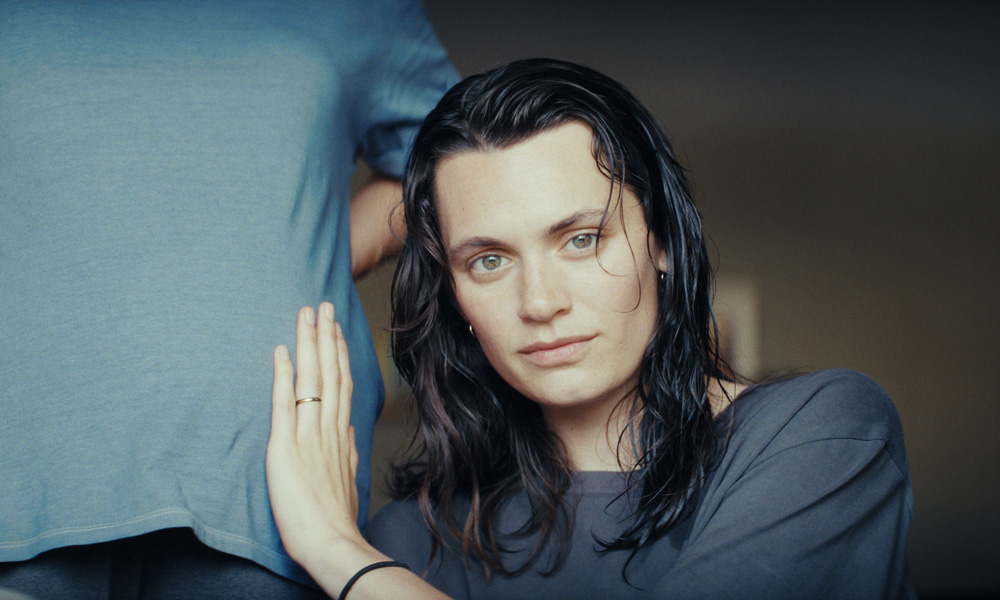As “Love Letters” wears on, it becomes clear that writer/director Alice Douard isn’t much of a fan of putting labels on things in general, but her first feature takes aim at one particular designation being set in Paris in spring 2014, just after same-sex marriages have been legalized. The celebration is over by the time the film’s brief opening credits end, giving way to newlyweds Celine (Ella Rumpf) and Nadia (Monia Chokri) for whom the nuptials were a formality when the two are in pursuit of a different title – mother. The trouble is the laws are too new for Celine, who supports Nadia as she carries their baby to term, to be recognized by the state as a parent to their child and with Nadia six months pregnant, Celine is eager to start an adoption process that will give her equal standing shortly after the birth of the child, requiring testimonies from family and friends as to why she’s a suitable guardian. Despite some early skepticism when told by their lawyer they should broaden the testimonies out from beyond their circle of lesbian friends to please a judge, it isn’t completing the task itself that’s the issue for Celine and Nadia, but rather the fact they’re being asked to do it at all when a heterosexual couple wouldn’t have to jump through hoops for the same recognition.
However, Douard is more interested in the individual disorientation this leads to than making any broader political point, delivering a film that is far less romantic than its title promises, but lovely in its own way when Celine has to start to see herself as a mother in order for anyone else to be able to. She has to set aside not only any larger cultural conditioning about what a proper parent looks like, but her own upbringing with a famed pianist (Noemie Lvosky), who long prized her career over her daughter. The necessity of obtaining as many testimonies as possible leads Celine to reconnect with Marguerite, a world-renowned pianist whose constant touring never left much time to bond with Celine, though it appears she still had influence for good as much as bad when Celine also has a career in music, albeit as a sound engineer and DJ. It doesn’t go unnoticed that Celine’s sound would be considered synthetic while the classical Marguerite plays would be considered more organic, but it’s clear maternal instincts never came naturally to the latter despite actually giving birth while they seem to for Celine, at least in her clear desire to want a child, muddying the distinction of what actually makes a mother.
The rebellion against long-held ideas extends beyond maternity to the narrative itself when “Love Letters” continually evades easy description to mixed effect. It can be occasionally jarring when the film’s naturalistic streak with its loose, handheld camerawork and realistic patter starts to curve towards more escapist flourishes, whether it’s Celine’s practice for parenthood with her co-worker’s kids that drifts into sitcom territory or one of the film’s most out-of-character moments that also happens to be one of its best when Celine and Nadia run through the streets of Paris at night after an unfortunate evening at a bar, taking on the magic of the City of Lights as the couple reaffirms their commitment to each other. Whatever tonal unevenness results becomes a small price to pay and inadvertently affirms the grander truth of the film where nods to conventional thinking only show how much is lost by placing strict limitations on the definition of what something is. “Love Letters” may not rewrite everything that’s come before, but in loosening up ideas about parenthood and other forms of family, it certainly makes a statement.
“Love Letters” will screen again at the Cannes Film Festival as part of Critics Week on May 19th at 7 pm at Le Raimu, May 20th at 9 am at La Licorne and May 22nd at 9 am at Miramar and 9:30 pm at Alexandre III.




